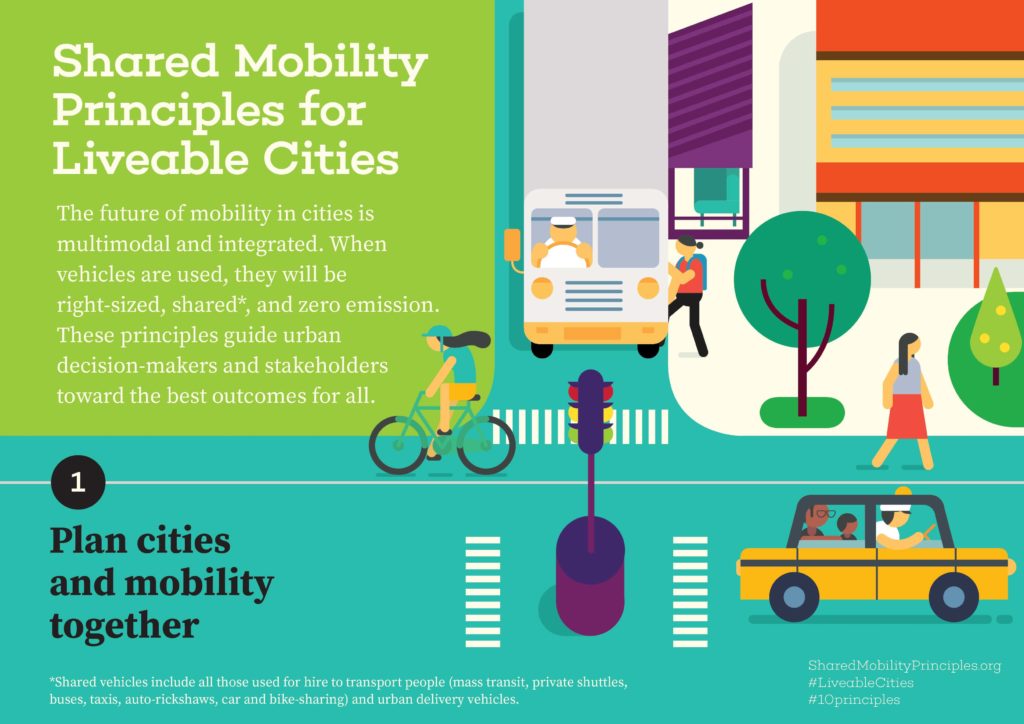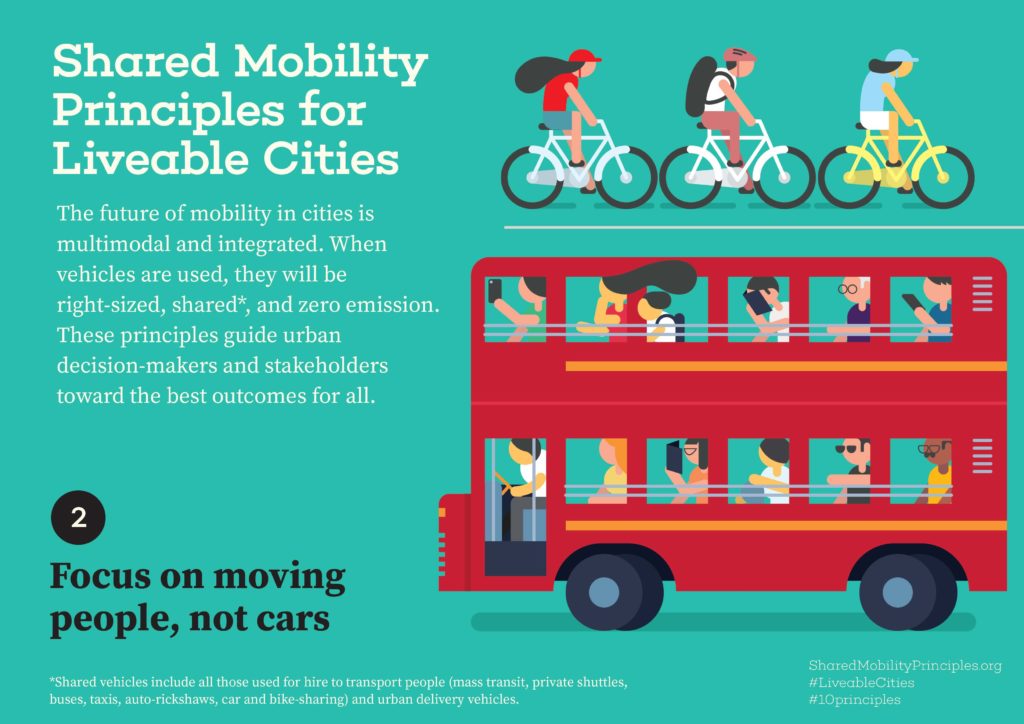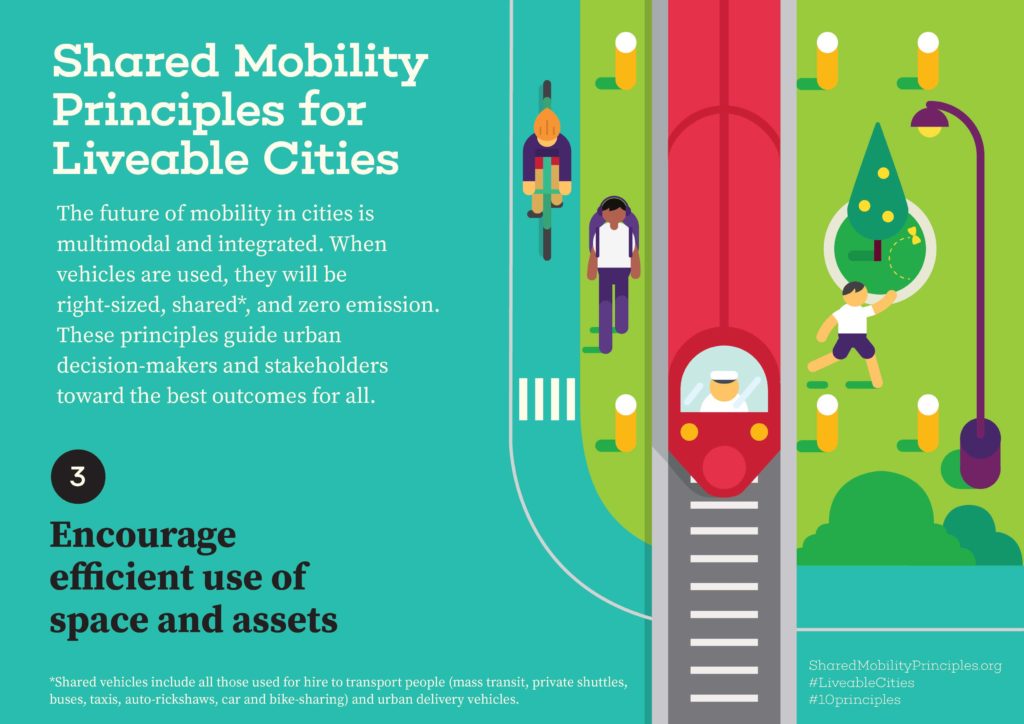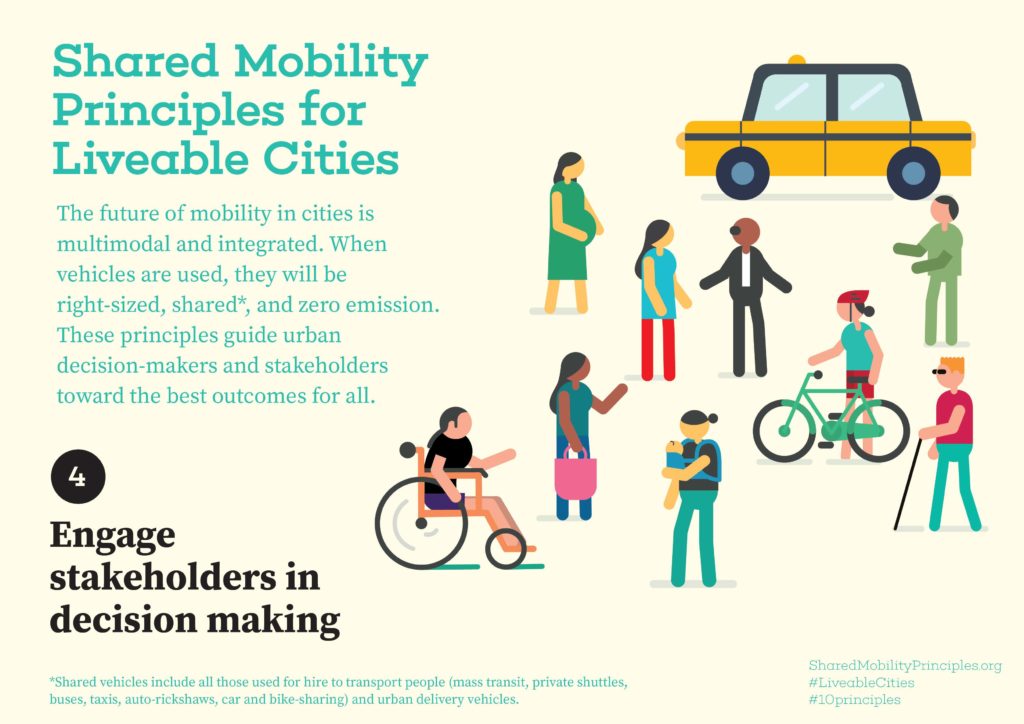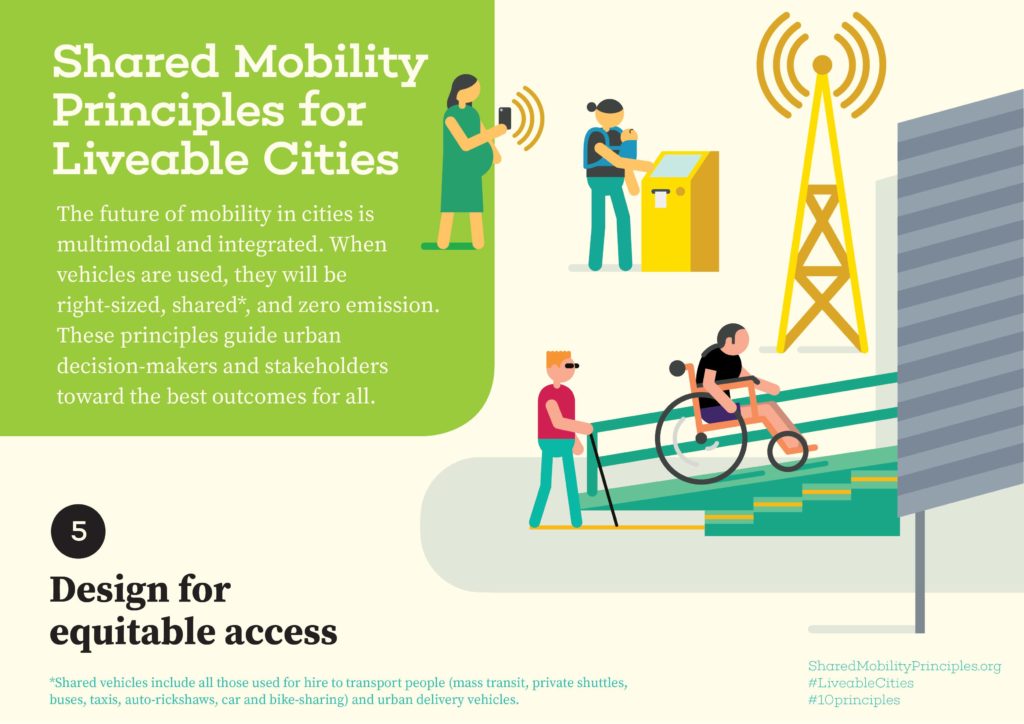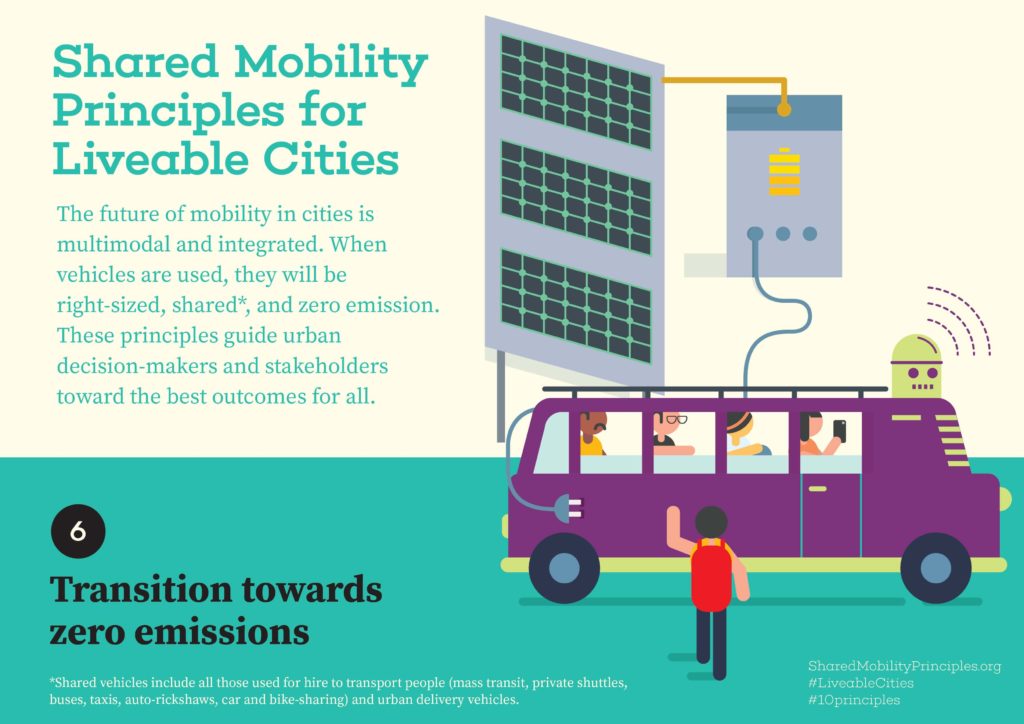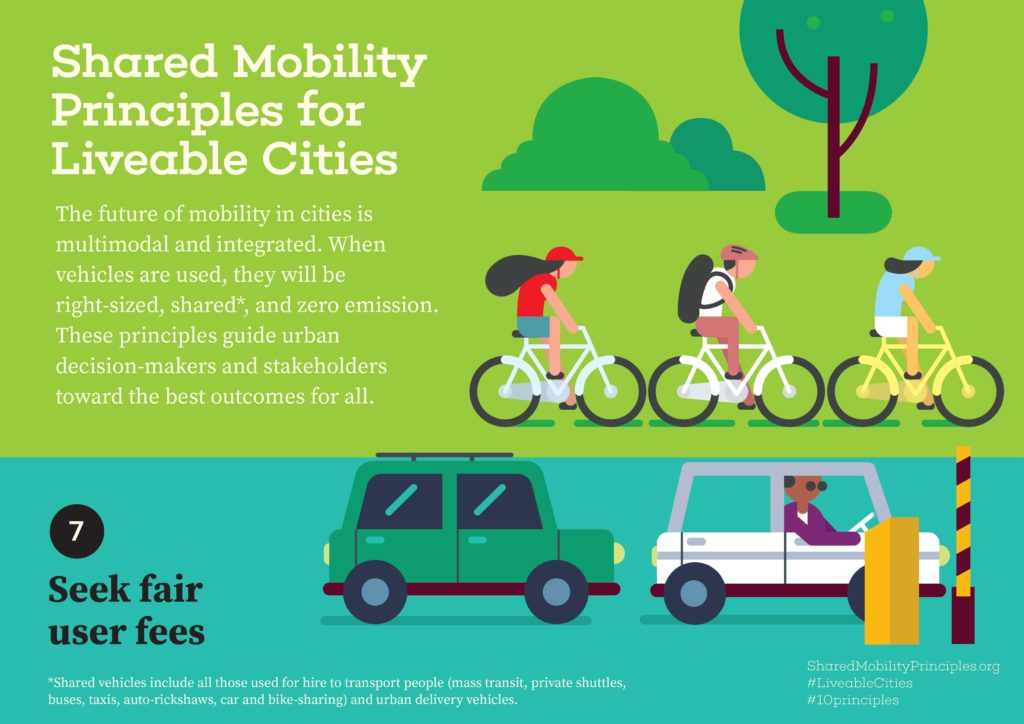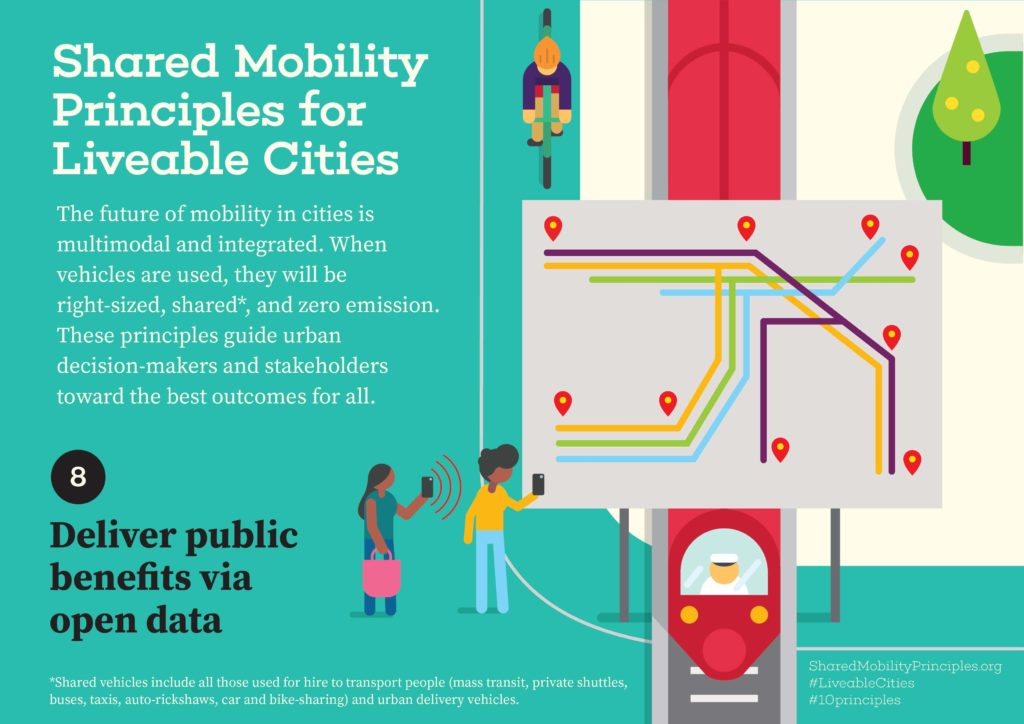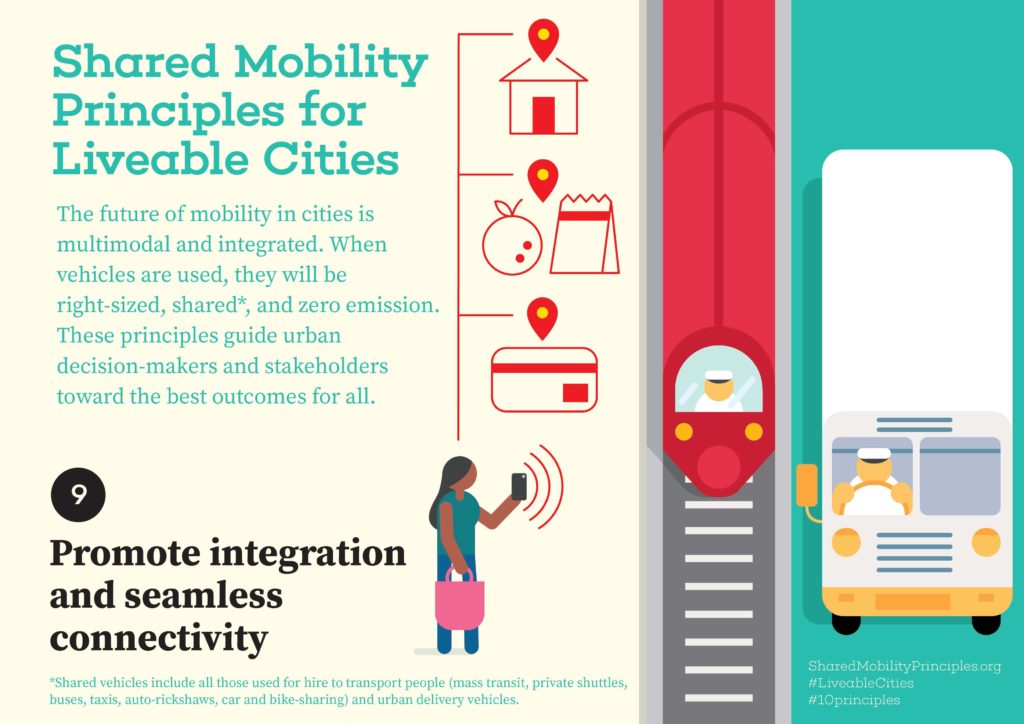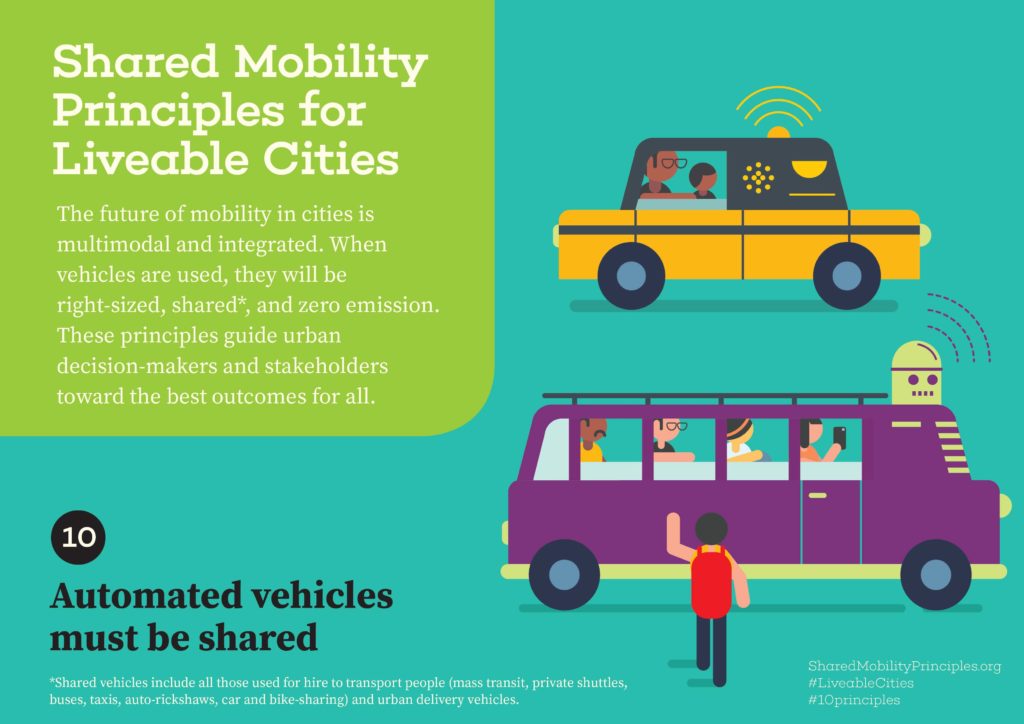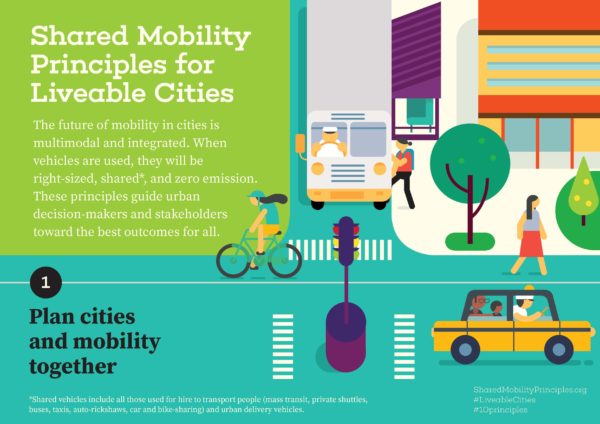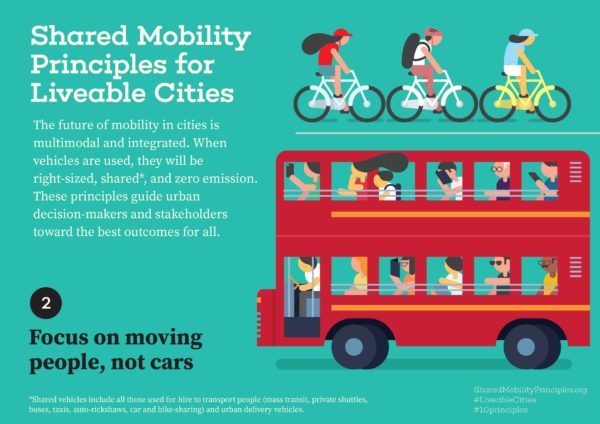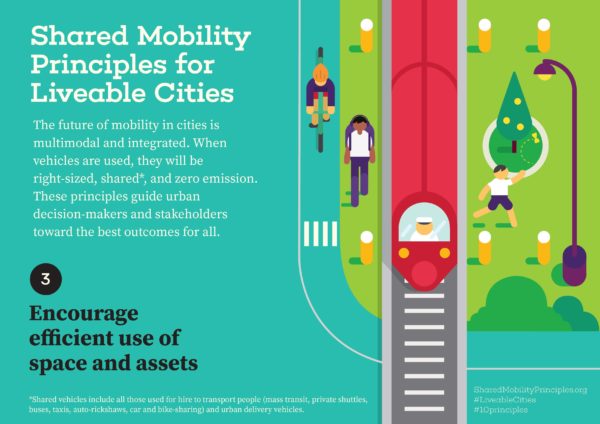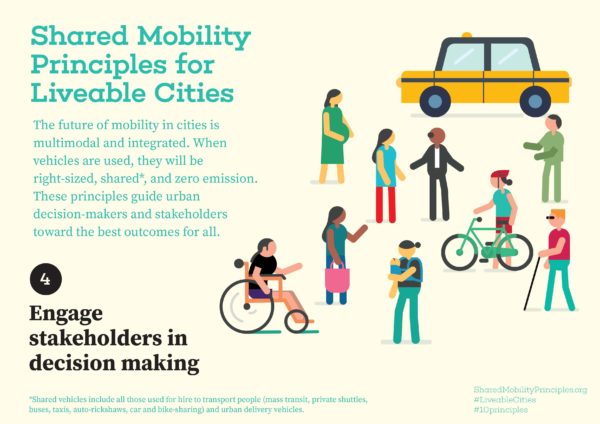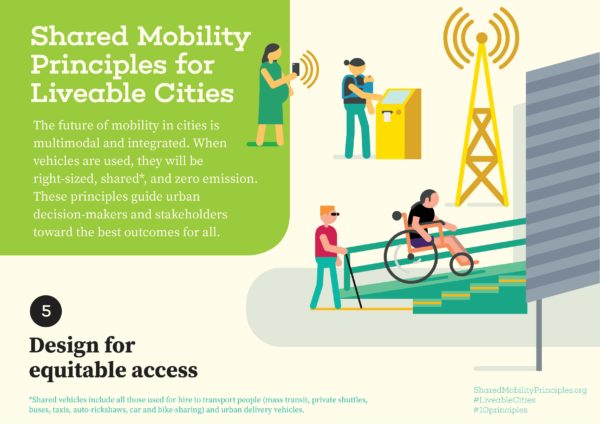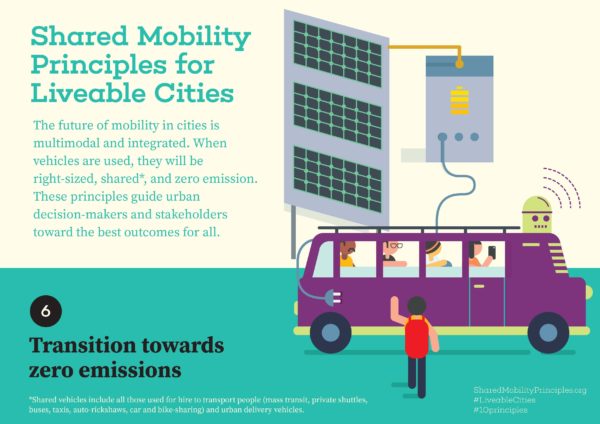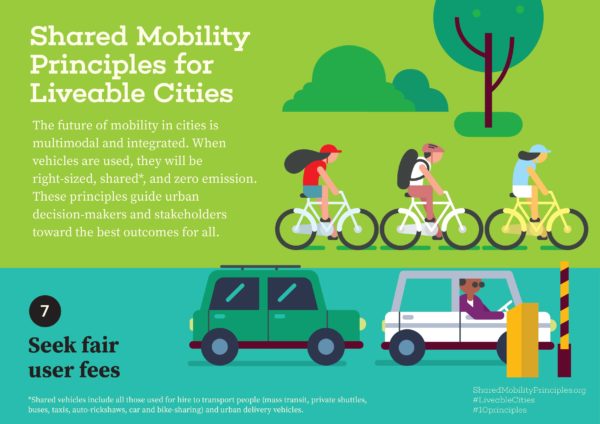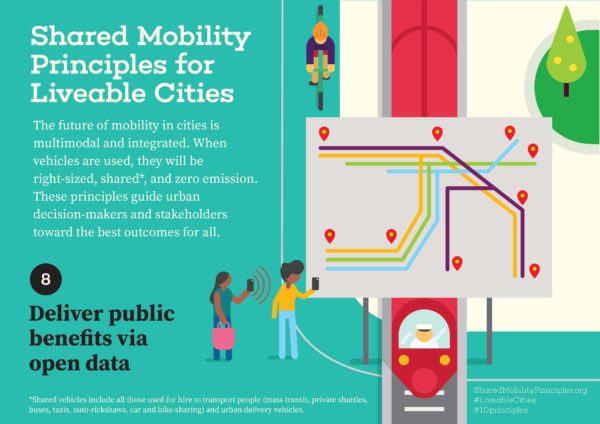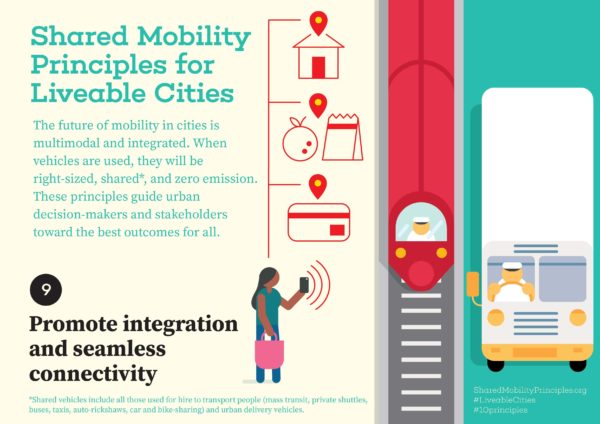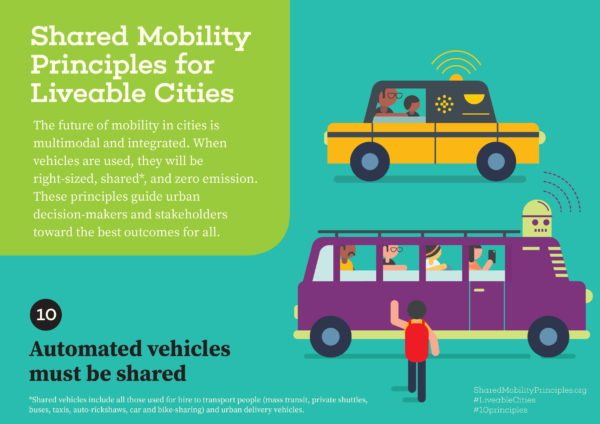Shared mobility is still on the rise as we can witness in the enormous growth of bike sharing schemes and providers. The video below by ito summarizes the history of bike sharing from its early beginnings in Copenhagen to its explosion in the last few years.
At the same time, there are many more modes in which shared mobility becomes apparent. Shared Mobility includes car sharing, personal vehicle sharing, bike sharing, scooter sharing, shuttle services, ride-sharing, micro transit and on-demand ride services. Each shared mobility service has unique attributes that have a range of impacts on travel behavior, the environment, and the development of cities and urban areas. Shared mobility networks also retain the potential to expand the reach of public transportation by addressed gaps in existing public transportation systems. Interesting enough shared mobility could be regarded as a form of public transport, or could it not?
Potentials and opportunities include:
- more mobility choices,
- first- and last-mile solutions to connect with transit,
- reduce transportation costs for households,
- lessen parking pressures,
- create independence,
- reduce congestion, miles traveled, and greenhouse gas emissions.
The importance for acknowledging shared mobility in the web of urban transportation has been reinforced by a coalition of nine NGOs, including the C40 Cities Climate Leadership Group, World Resources Institute, Local Governments for Sustainability, and the Natural Resources Defense Council. Together they released 10 principles in order to aid cities with an implementation of smart ways of shared mobility. The Shared Mobility Principles for Livable Cities were launched at the 2017 Ecomobility World Festival in Kaohsiung, Taiwan, where they were reflected in ICLEI’s Kaohsiung Strategies for the Future of Urban Mobility. The report covers broad, agreed-upon concepts that proponents believe should form the basis of any city’s transportation planning. It includes principles around equity, fair use fees, open data, integration, and more. The 600 mayors who were present at the 2017 Ecomobility conference agreed with the principles and set the first milestone of an open source shared mobility policy.
The founding coalition was initiated by Robin Chase, a shared transportation expert and former CEO of the car-sharing platform Zipcar who helped develop the principles. She says about the use of these principles: “We think of the principles as open-source. Anybody can take them and run with them. You don’t have to ask for permission. That’s what the Smart City Council did. They took this idea they ran with it”. She is extremely happy with all the signatories such as public entities as well as many private sector companies and many NGOs. Looking back on how the principles came into being, she points to the challenge of addressing a worldwide audience with a clear vision: “I convened ten of the world’s largest city and transport NGOs together, and I gave them a straw man of some principles. I said we’re all coming from these different sectors and different places around the world. There must be pieces of advice on which we all agree. The goal was that these principles have to be things that apply to 90 percent of the cities worldwide. What’s good for Bloomington might not be what you would recommend for Mumbai.” Seven months of “heavy wordsmithing, and discussion” later the group was able to present 10 principles.
The consortium encourages all stakeholders – cities, NGOs, academic institutions, and companies – to seek creative uses of the principles. Meaning also the use of resources such as posters and slides to spread the word about shared mobility policy in urban areas. They are also available in different languages. Of course, the core of this undertaking is not the downloadable poster, but rather the fact that an influential group of entities ranging from public to private sector came together to agree on 10 simple and straightforward principles without arguing for the usual “exceptions”. In February 2018, fifteen of the world’s leading transport and technology companies signed the Shared Mobility Principles for Livable Cities, pledging to prioritize people over vehicles, lower emissions, promote equity and encourage data sharing, among other goals. The companies include BlaBlaCar, Citymapper, Didi, Keolis, LimeBike, Lyft, Mobike, Motivate, Ofo, Ola, Scoot Networks, Transit, Uber, Via and Zipcar.
